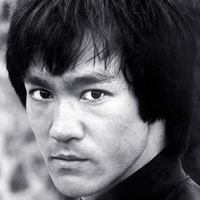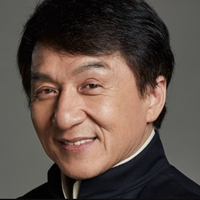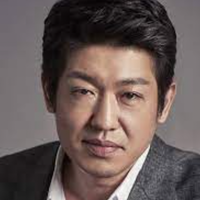Zhu Yilong MBTI -Persönlichkeitstyp
Persönlichkeit
"Welcher Persönlichkeitstyp ist {profilename}? {profilename} ist ein {MBTI} -Persönlichkeitstyp in MBTI, {enneagram} - {iv} - {tritype} in EnneArgram, {big5} in Big 5, {socionics} in Socionics."
¶ I was comparing them to a friend before, but it's pretty interesting to see 3 INFJ Chinese actors with different sociotypes and how they manifest differently in behavior, but the kinds of things they say are quite similar. These individuals being Hu Ge (INFJ EIE—or at the very least IEI-Fe—more dramatic and expressive, forceful), Xiao Zhan (INFJ EII, more ethically principled but softer, less likely to use force, humanitarian), and Zhu Yilong (INFJ IEI, more withdrawn, inert and slow, imaginative, immersive in various worlds, etc. easily mistyped as INFP). ➼ If you've seen the kinds of responses Zhu Yilong gives compared to Xiao Zhan in particular, you will see these shared aspects. Being firm with their logical principles via Ti, but having a vast, overarching, implication-driven way of answering questions and digging deeper into responses (Ni). Questioning the meaning of certain questions (Ni). ➼ Both actors, despite XZ being an INFJ, immerse themselves fully into a character and live as they do during the filming process (not indicative of INFP alone), in pursuit of excellence. They have pretty high, sometimes unrealistic standards and are considerate of the judgments and receptions of the audience, and seem to aim to achieve performances that meet some of those external standards (Ni-Fe). https://www.youtube.com/watch?v=cZfAtMng4Xk Interviewer: "Before this period of sudden fame, have you ever felt forsaken by audiences, especially since you do act well?" "Never. If the reception of audiences isn't good, it simply means that the acting wasn't good. An actor's performance commands direct judgment from audiences. You simply do not have any reasons for bad acting. Regardless of your circumstances that you encounter, audiences will eventually be able to watch your shows on television or through online platforms. So if you do a good job, audiences will acknowledge it, and if you don't do a good job, you wouldn't gain their recognition. It's simply like this." ➼ Fe types will strongly consider the input and judgments outside themselves as impartial indicators of quality and value, and here he even expresses this in a more logical, principled manner which aims to justify his stance on the sentimental evaluation. Says it so matter-of-factly too, as if it’s just natural. Though I can't dig up direct interview quotes which reflect this similar sentiment right now, I do know one by Xiao Zhan that has the same idea: "喜欢是相互的,没有人会无缘无故喜欢你,你要对得起他的喜欢" "Liking is mutual, no will like you for no reason; you have to be worthy of their liking." ==== ¶ Note 5:07 onwards, especially if you're a native Chinese speaker like me, you'll find that his explanation of being a male actor of 30, the phrasing and the way his brain runs through the thinking process is eerily similar to one of Xiao Zhan's interviews below. The part about how he handles and adjust his feelings here also resemble how Xiao Zhan very logically and impartially dissects how he processes them too, in these interviews: https://www.youtube.com/watch?v=0IBsjPb_hG4 https://www.youtube.com/watch?v=f1YeyyUXhu8 https://www.youtube.com/watch?v=w5qX5okbw58 (especially around 19:30 onwards I think?) ==== Also, compare the way they seem to evaluate their own acting roles and analyze their characters, as well as their mindset towards acting: https://www.youtube.com/watch?v=GxpIY66l5ak (the second half really reveals that very insightful evaluation of the overall state of things via Ni, but 1:20ish is the analysis I’m comparing with the below link) https://www.youtube.com/watch?v=zzUc0JCDN1w I would recommend checking out Xiao Zhan's PDB page as well, since there are more nuanced evaluations and examples there. ➼ Overall, I see the very holistic, overarching view of a Ni-dom in looking past the veneer of reality as it is (Se), which drives them to strive for an ideal that does not yet exist and thus keeps them humble to being imperfect, and seeking something constantly better. ➼ This is combined with how, in the process of explaining things, he tends to gravitate towards statements that address the exact core of an issue, or ones that strive to encapsulate an experience in a general message (Ni), as opposed to the tendency for INFPs to go on more tangential routes and explorations with their Ne. ➼ Also, he possesses an impartial view of judgment, grounded by the external sentimental evaluations of others and an internally principled and logical nature that seeks to address the fundamental logic of certain actions or decisions (Fe/Ti).
Biografie
Zhu Yilong (Chinese: 朱一龙, born 16 April 1988) is a Chinese actor. He is best known for his roles in the television series Love Three Lives (2014), The Shaw Eleven Lang (2016), Border Town Prodigal (2016), Guardian (2018), The Story of Minglan (2018) and Reunion: The Sound of the Providence (2020).
















